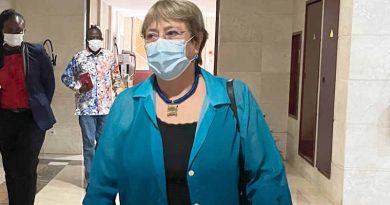UN Experts Urge to Guarantee Children’s Rights and Dignity Online

States must urgently develop comprehensive strategies to prevent child sexual abuse online and to address both the opportunities and the risks that the Internet presents for children, UN human rights experts said in a statement marking Safer Internet Day on 11 February 2020.
The UN Special Rapporteur on the sale and sexual exploitation of children, Maud de Boer-Buquicchio, noted with concern the unprecedented spike in reports of child sexual abuse material online, the scale and complexity of the problem and the enormous harm it is causing.
“By virtue of their commitments under several human rights treaties, States have the primary responsibility to establish a comprehensive legal framework and strategies to protect children in the digital environment, encompassing the early detection of cases, appropriate services, child-friendly reporting mechanisms and effective remedies,” the experts said. “Victim-centred laws and policies are of paramount importance and perpetrators must be held to account.
“States must ensure that the IT industry has mechanisms to detect, report and block child sexual exploitation material. They must establish tools to monitor the hosting of child abuse materials within their jurisdictions. They must also ensure that the private sector is effectively collaborating with law enforcement, to guarantee that their networks and services are not misused for criminal purposes and to gather evidence for criminal proceedings.”
[ Young Learner News Magazine on School Education ]
De Boer-Buquicchio called for more investments from the IT industry, to better engage and take its share of the responsibility in the fight against child sexual abuse online by providing resources and technical expertise. Financial coalitions against child pornography have had a significant impact on detecting transactions related to child sexual exploitation and must be expanded, she said.
As digital technologies also provide the secrecy, anonymity and opacity to generate, host and consume child sexual abuse material, the Internet industry is uniquely placed to act as a conduit for reporting suspicions, blocking inappropriate material, and reinforcing key safety messages. “Prevention must be prioritized, including through education programs and awareness-raising campaigns targeting children,” the experts urged.
“We need to do more and act together, better and faster, to end violence against children online by 2030, ensuring that digital media are not used to perpetrate crimes against children. In tackling this issue, children themselves are among the most important actors. They must be involved and empowered to act as drivers of change, with particular attention to the most vulnerable, to ensure no child is left behind,” said Najat Maalla M’jid, UN Special Representative of the Secretary-General on violence against children.
“It is the responsibility of both the State and the private sector to educate children and teenagers about safety on social media platforms and the Internet; to protect their privacy online; and to explain the risks of sharing intimate images,” said Joseph Cannataci, UN Special Rapporteur on the right to privacy.
The experts noted that the Internet has enormous potential to support the realization of children’s right to freedom of expression, including to seek, receive and impart information.
“We need to embrace technology through a child-centred perspective by prompting an empowering, inclusive and safe digital agenda for children. We must integrate the issue of new technologies and their impact on children’s rights into existing initiatives and processes, including the Decade of Action to deliver the Sustainable Development Goals by 2030,” Maud de Boer-Buquicchio concluded.




